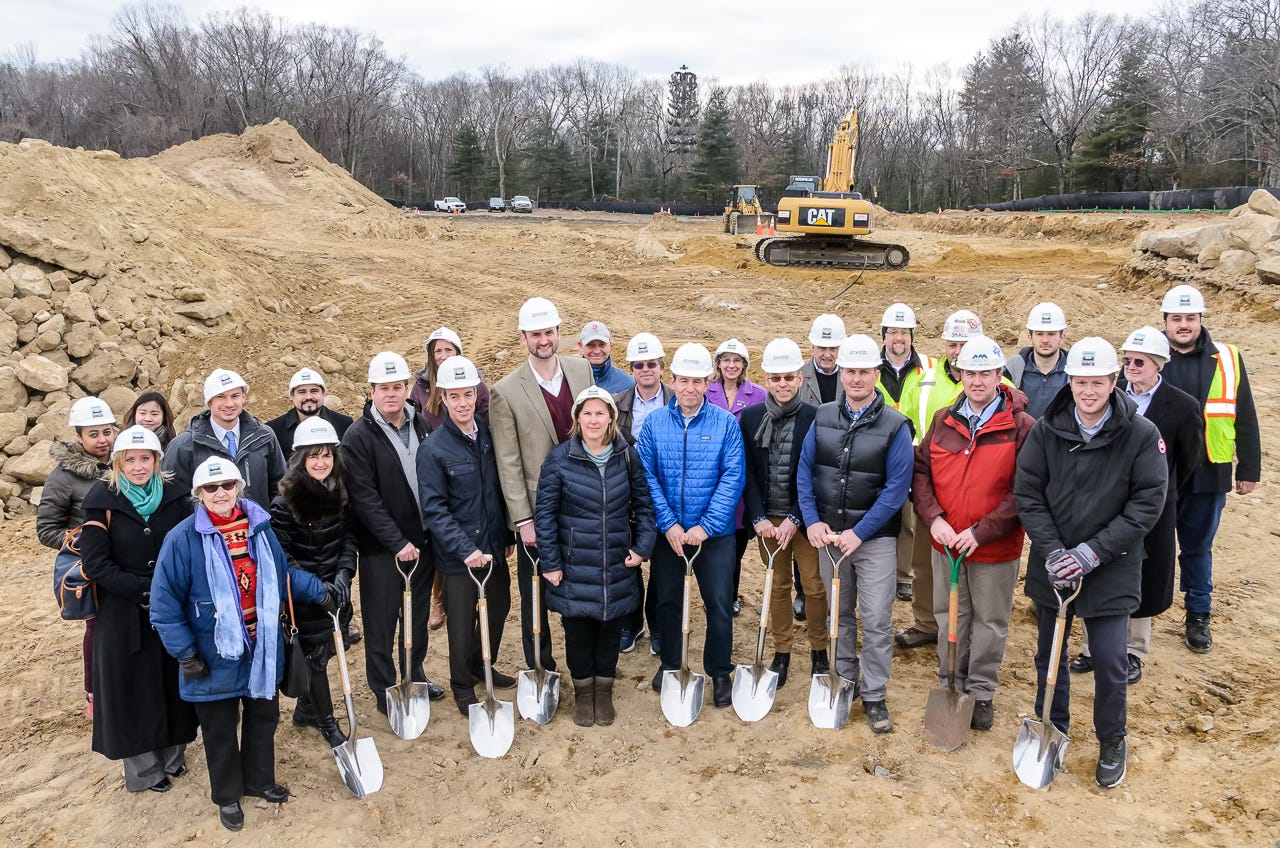3 Important Lessons in Finding the Right General Contractor for Your Real Estate Project
Save time and money with these hard-earned lessons.

When you begin a development project, you have a vision of what could be. The vision begins to take shape over time as you work with the local municipality, the land planner, the civil engineers, and the architects.
Once you have developed a financially viable plan, you must engage a General Contractor (GC).
The earlier you get feedback from a contractor, the better, but until you have detailed plans, they can only provide very high-level pricing based on other jobs they have completed. This can serve as guidance for your pro forma, but you want to get solid pricing as soon as possible.
This process is driven by your relationship with general contractors in your area. Not all contractors are the same.
When deciding who to call for initial pricing, you must consider the contractor’s experience, manpower, ability to perform at the required scale, and the geography of your project location.
All of this comes back to whether the GC has done this type of building before in this market. If the answer is no, you should look elsewhere for a contractor.
For example, we recently finished construction on a 95,000 SF Class-A warehouse just north of Boston. The contractor who built it is FCL Builders. FCL Builders has a huge amount of experience with this product type. They build it all over the United States at the scale of 50,000 SF - 3,000,000+ SF. They know what tenants of this type of Class-A product want. They understand the requirements for parking, site access, and the truck court. So they become a partner and can provide feedback as you are building.

When we look to build another 100,000+ SF warehouse, we will plan on calling FCL Builders. The same can be said for ARCO, which is the biggest industrial builder in the U.S. They provide pre-construction services and pricing for us on deals. They know their product and their customers. We will continue to call them.
Who should not build this type of product? A company that has only ever built small-bay, metal buildings or flex buildings should not build this. A firm that has only ever built single-family homes is also a bad choice. These groups may be able to do the job, but when you are at risk for millions of dollars of your investors’ money, you had better choose the right contractor with the right experience and not gamble.
There is enough risk in development, you don’t need to add more by hiring an inexperienced construction team to manage what typically amounts to 80+% of the total project cost.
We’ve created some lessons to help you successfully navigate the process.
Lesson 1: Create a process to evaluate and hire a General Contractor.
(As an example, here’s ours:)
Identify the product type we intend to build on a given site.
Select 3-4 GCs with the right product experience in that market.
Request Proposals from the GCs. The proposals must include a description of the GCs experience in the product type, the team with their biographies and work experience, the proposed schedule, and the proposed budget with any holds for undesigned work or work they anticipate or note may have been missed.
Interview each of them. Review the pricing, schedule, and team during the interview.
Once the land is under contract, move forward with the design. If the project is in a design-build format, bring a contractor with their engineering team.
If the project is bid-built, finalize the drawings and then submit them to the GCs for bids. Then, award the contract and move forward with construction.
Lesson 2: Consider these things when selecting a GC for a job:
Your own experience and the builders you have worked with successfully. Go back to the same GCs that you like and trust. This will streamline your process and will lead to a series of successful outcomes. No other part of your investment process, other than your initial pro forma and approvals, is more important than this decision.
Your friends in the development industry and who they like to work with. Leveraging your relationships gives you social proof, and your colleagues will not recommend problematic groups. This can help when you need to whittle down the competition or when you need to add 1-2 contractors to the mix in your hiring process.
Their experience with this product type and in this market. It is as simple as have they built it in this area?
Their proposal for the job. Pay attention to the proposed team, who do they intend to assign to work on the project? The team with the most experienced Field Team, especially the Superintendent and Senior Project Manager, will always outperform those with less experience. There are a couple of reasons for this, but they are typically 1) They have better subcontractor relationships 2) They know the tricks the subs play with pricing, 3) They can anticipate potential delays better due to experience with local municipalities and utilities, 4) They have a better handle on pricing because of #1,2,&3.
Visit a job site they are currently have a job on. Walking one of their job sites will quickly inform you about how they manage their projects. Are they organized and focused on streamlining their processes? Do they communicate well with their workers? Is the site clean and orderly? The way a contractor works is the way they work. From the field to the top level executives how they work is in the details.
Lesson 3: Here’s what NOT to do when selecting a GC for your development project:
Don’t hire a GC based on your friendship or perception of a positive relationship with the point of contact. None of this matters once you get into the project. All that matters is what they have built and who will manage your project.
Do not hire a GC based on the initial pricing guidance they provide, which is aggressively better than the other GCs. This typically means they will provide a lower quality product, or they are intentionally under-bidding the job to get it, then later raise the pricing once you're committed. This type of bait-and-switch tactic is common in GC interactions, so watch out.
Finally, don’t skip calling their references. Always call each of their references and ask about their process and what they might have done differently with their interaction with the GC. This will reveal more than you would expect about the construction team. The references are typically candid and will provide you with information on how to handle the team and the process.
What do you think? What can you add based on your experience with sourcing GCs?
Let’s connect!
Let us know about your journey! I want to hear about it either in the comments or DM me on LinkedIn.
If you’re thinking about starting and unsure where to begin, reach out. I enjoy “coaching” people to get their businesses off the ground.
Who knows, maybe you’ll pitch me a deal, and we can work together as partners.
Thanks for reading The Lineup! Subscribe for free to receive new posts and support my work.
Links we are reading this week:
NYTimes Article - Bob Knakal - This Real Estate Kingpin Maps out the Path to Megadomination
Thesis Driven - What the Future of Work Means for the Future of Real Estate
NAR- How Generative AI Can Transform Your Real Estate Images
Business Insider - The Vision Pro’s Scary Side Effect
When Using AI Everyone is Above Average - One Useful Thing Substack
This mindset is the key to success - Sahil Bloom As Seen On X
Become a Real Estate Tech Insider!
The Real Estate Tech Insider podcast, by John Pugh and Rachel Walters is now live on Spotify. Our conversations focus on what technology and new innovations are driving developer’s returns today. Give us a listen and if you like what you hear, please give us a review!
Exactly zero defense was played this past weekend in the highest scoring NBA All-Star Game of all time. The final score was 211-186 with the East beating the West. As much as I don’t want anyone to get hurt, what’s the point of a game at all if there is going to be no competition? Maybe they should just stick with he skills contests from now on and name the guys to the team. I used to watch as a kid, but haven’t watched one of these games in at least 15 years. Maybe I’m missing something?
Head coach at the New York Nets Jacque Vaughn was let go Monday morning. He was an absolute pleasure to watch when he played for the Kansas Jayhawks. Unfortunately it seems like he never quite rallied his teams, though having certain players with huge egos and little leadership didn’t help his cause. He will be missed…by me at least.
In college hoops, Zach Eden and Purdue lost to Ohio State 69-73. They are dominant and will be at least a Final Four contender in the NCAA tournament this year. I look forward to seeing how things shake out with Edey and following along with his NBA career.
St John’s coach Rick Pitino totally lost it on his team at a recent news conference. “I’m really disappointed in my team,” said Coach Pitino. Never a good look. He’s trying to rally them going into the tournament, but not sure it will work this time. We will see. In other NYC hoops news my team Fordham falls to 10-15 with a loss to #16 Dayton and that makes it 3 losses in a row. They have had a tough season after last year’s big winning season. 10-15 is still much better than what the Rams had just 3 years ago.
Links of interest:
Struggling Nets Fire Head Coach Jacque Vaughn
The Unstoppable Move That’s Taking the NBA by Storm
UConn Atop the NCAA Men’s Standings While Purdue Falls to #2 With Loss
Fordham Falls to 10-15 with 78-70 loss to #16 Dayton







